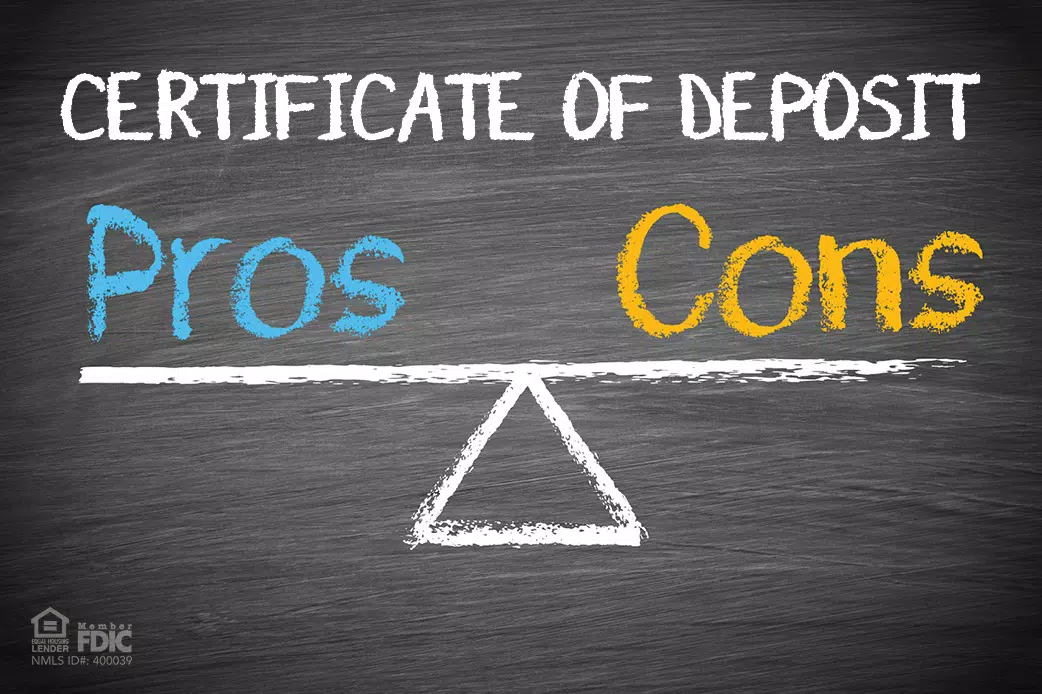If you save money and don't often take it out, a certificate of deposit might be a better choice over savings accounts. Certificates of deposit hold your money for a set time and usually have higher interest rates than savings accounts. And with CD rates beginning to rise, now may be the perfect time to consider opening a CD account.
How CDs Work
Money deposited into a certificate of deposit must stay in the account for a designated time. When that specified time is over, you’ll have access to the interest earned and the money originally deposited.
Depending on your offer, the time you keep the money in a certificate of deposit can vary from months to years. The designated time is known as the “term.” Generally speaking, the longer the term, the higher the interest rate earned. The maturity date is the specific month and day the term is over.
To withdraw money from a CD before it's due, you must pay a fee for early withdrawal. This penalty will vary depending on the financial institution's policies. Usually, the bank determines the penalty by considering the CD's duration and a set number of months of interest.
Why Consider a CD
A CD is a good choice for a savings account you are not using or have low activity in. It is also a good choice for any account someone uses for a long-term goal, such as saving for a new car or a down payment on a home. Check the interest rate on your account, and then shop for a CD with a higher yield.
Common CD terms are three, six, nine, twelve, twenty-four, and sixty months. Calculate the duration your money can be tied up before opening a CD. In the end, early withdrawal penalties may not be worth the higher interest rate earned on a CD.
Another strategy to keep money on hand is to open multiple CD accounts with varying terms. For example, you might open six-month, nine-month, and one-year CD accounts, staggering the maturity dates. If you need money unexpectedly, you won’t be too far from the end of one of the CDs' maturity dates. This strategy is called CD laddering.
Types of CDs
There are also a variety of types of CDs offered through financial institutions. A regular CD has a fixed interest rate throughout its duration. Additionally, it imposes a fee if you withdraw money before the CD matures. However, there are more flexible CD options that you may also want to consider.
A liquid CD will allow you to withdraw funds without paying an early withdrawal penalty. Also known as a "No Penalty" CD, the flexibility of withdrawing does come with a trade-off.
Liquid CDs offer lower interest rates than traditional CDs, which lock you into a designated period. Be sure to review the details before investing in a liquid CD. There could be limitations on when you can pull the funds or how much you can withdraw.
Step-up CDs automatically schedule interest rate increases. The rate at which you open the CD does not lock you in. The increases will vary, potentially occurring every few months or once a year if it's a longer-term CD.
Another type similar to a liquid CD is the bump-up CD. It has the same advantage of not being stuck with a lower interest rate since you first opened the CD.
The financial institution will switch to a higher interest rate with the existing account, assuming that the institution has offered one. Sometimes, you'll have to proactively inform the financial institution that you want the new rate applied for them to change it.
Brokered CDs, sold through brokerage accounts, provide an additional choice. These CDs often offer better interest rates. Instead of opening accounts at various banks, you can buy brokered CDs from different banks and keep them in one place. Make sure that the banks you're considering are FDIC-insured.
If you're ready to open a certificate of deposit, NASB offers high-interest rate CDs with low minimum opening requirements. Call us at 800-677-6272 to talk to one of our experts today. And for more information, check out our NASB Now video series, Understanding Certificates of Deposit.




